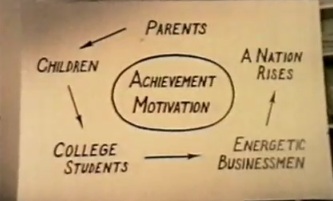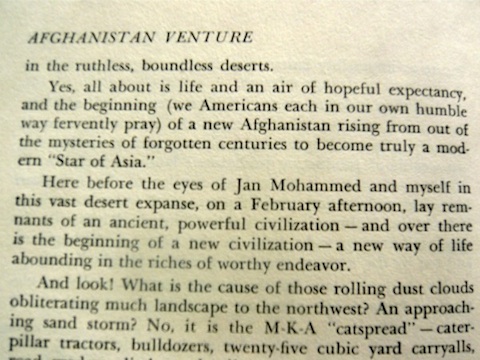This article is more than 1 year old
Adam Curtis uncovers the secrets of Helmand
Heroin, hippies and hero engineers
How evil is Dr Evil?
The leading Islamists and the people they fought against between 1978 and 1982, out of which came the Mujahadeen, were all radicalised Western educated students. I found that absolutely fascinating.
Take Gulbuddin Hekmatyar, or "Dr Evil", who has survived through all the jihads, and is thought of as the most terrifying thing in the universe. He was a Communist student [who developed] revolutionary ideas at Kabul University, in a department built by American money. He decided he didn't like the Maoists and defected to the Islamists instead. Well, we depict people like him as terrifying dark ogres, which relate to Lord of the Rings, almost. I think that's really bad reporting and our journalism has become trapped by that.
I'm just trying to do a form of journalism that makes you look at the history. And how the chaos there today is a product of the dreams we had of Afghanistan - be it American technocrats, Western revolutionaries or conceptual artists - and the dreams that Afghans had of the West. And it's out of that strange interplay of extreme visions of each other. I don't think our reporting gets there, because it's limited, and also because no one does the history.

It's a bit like when I did The Power of Nightmares - nobody had done a series on the history of ideas that led the World Trade Centre being destroyed. Nobody on TV has done a history of Afghanistan from the 1870s to now. I think that's a dereliction of duty.
We've only been in Afghanistan seven years - give them a chance.
I may be being unfair but it's about time.
Will the blog become a TV documentary - er, blogumentary?
The basic fact is they gave me a website on which I put up this film, It Felt Like A Kiss and things associated with it. When I'd done that they asked what I wanted to do next. They wanted me to all sorts of bloggy stuff and I just would not do that. I think that's so boring. It's noodling and doodling and it's exactly what I criticise the web for being - the idea that half formed, half, vague, badly researched aperçu, we used to call them, can be some new form of journalism.
Out of desperation I just started taking the stories I knew about Afghanistan and started feeding them into short descriptive pieces. One was a moment in time where in Kabul, four separate things were happening which were to change the way we dream about Afghanistan, and the way they dream about us.
Walt Rostow, who's in Part 3 - "The Lost History of Helmand" - seems like the quintessential American technocrat of his time. What about his involvement there reminds you of now?
He is a fascinating character. He pushes these projects into ever grander dreams - with a series of scientific stages you go through - and captures the ear of John F Kennedy. Then he becomes one of the main and most fervent supporters of bombing in Vietnam - coupled with this weird idea that you can transform the Vietnamese into model citizens, at the same time as you are bombing them.
Through rational education and behavioural psychology - it's B F Skinner - if you put people in the right environment they will behave in the right way. That's what they tried in these essentially guarded villages and expected democratic beings at the other end. It reminded me so much of Afghanistan today.
You wonder if there is for all the failure of those technocratic projects by the end of the 1970s, the dream didn't carry on somehow. And although Blair and Clinton weren't inspired by that, what you've got is the return of that idea.

